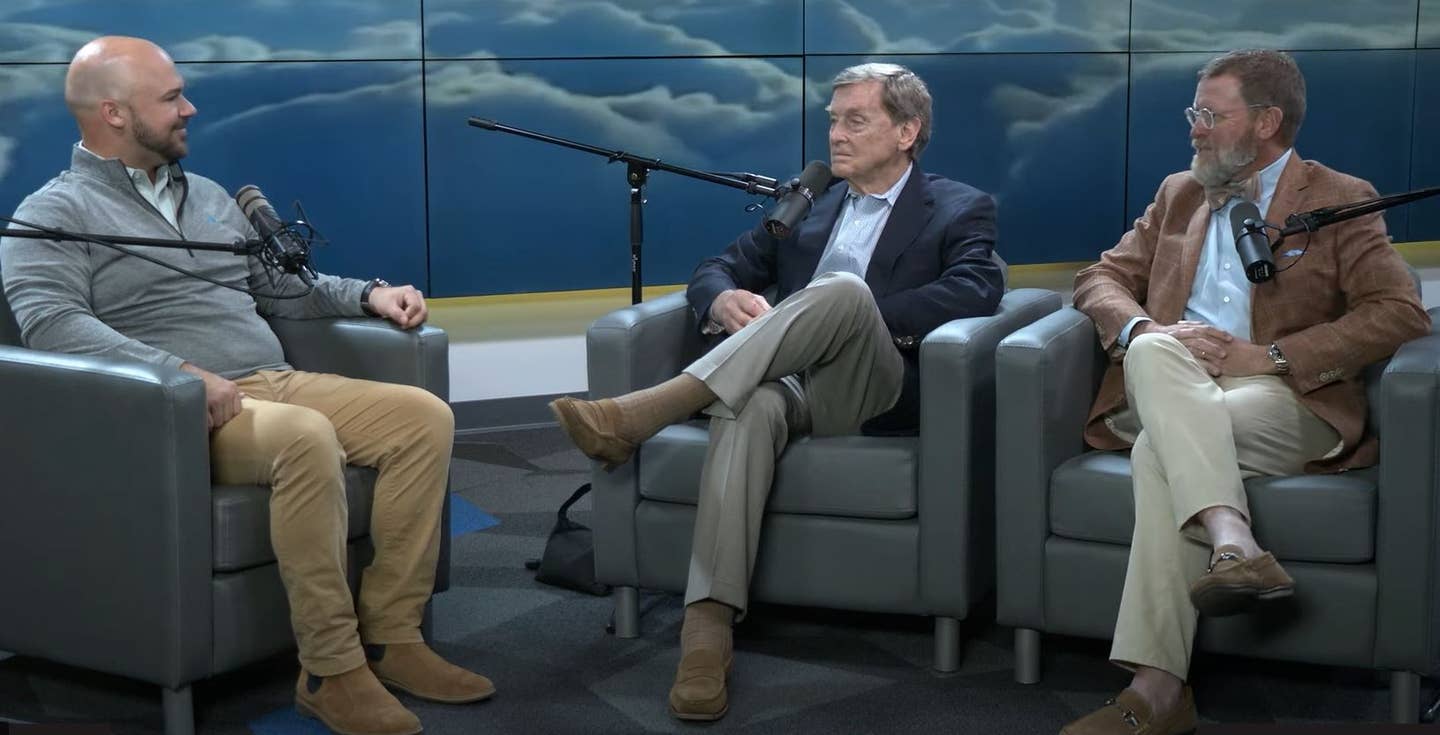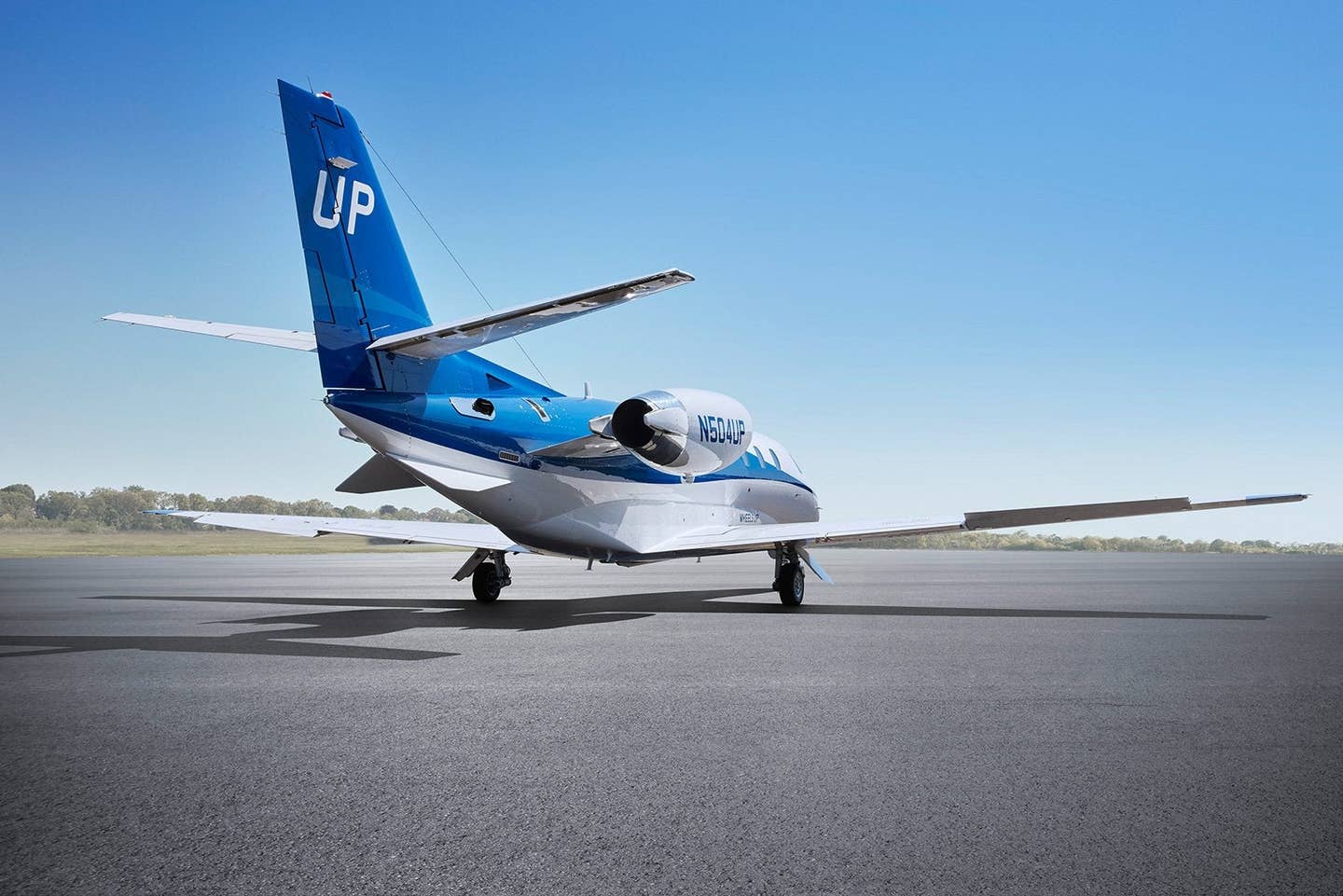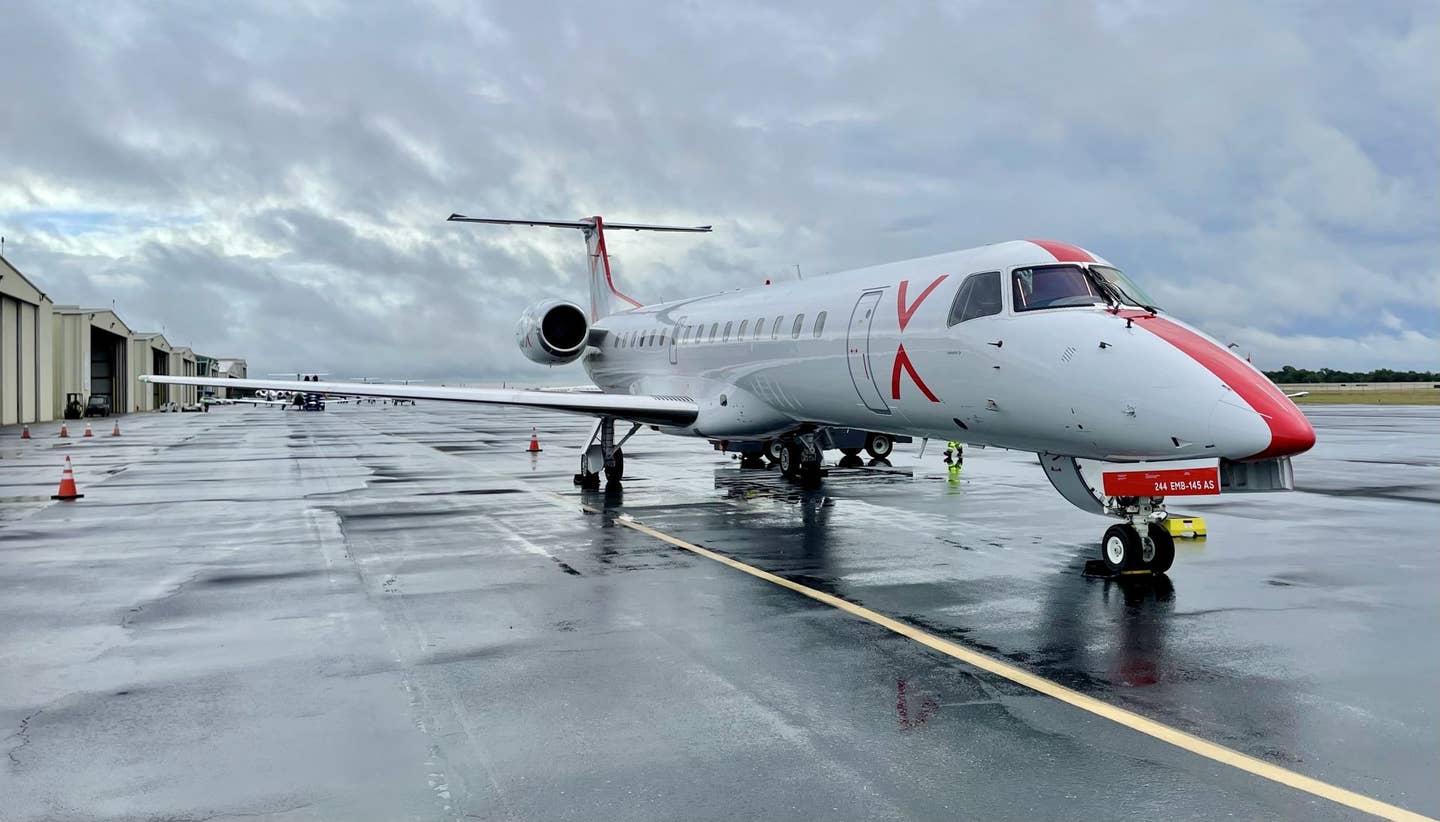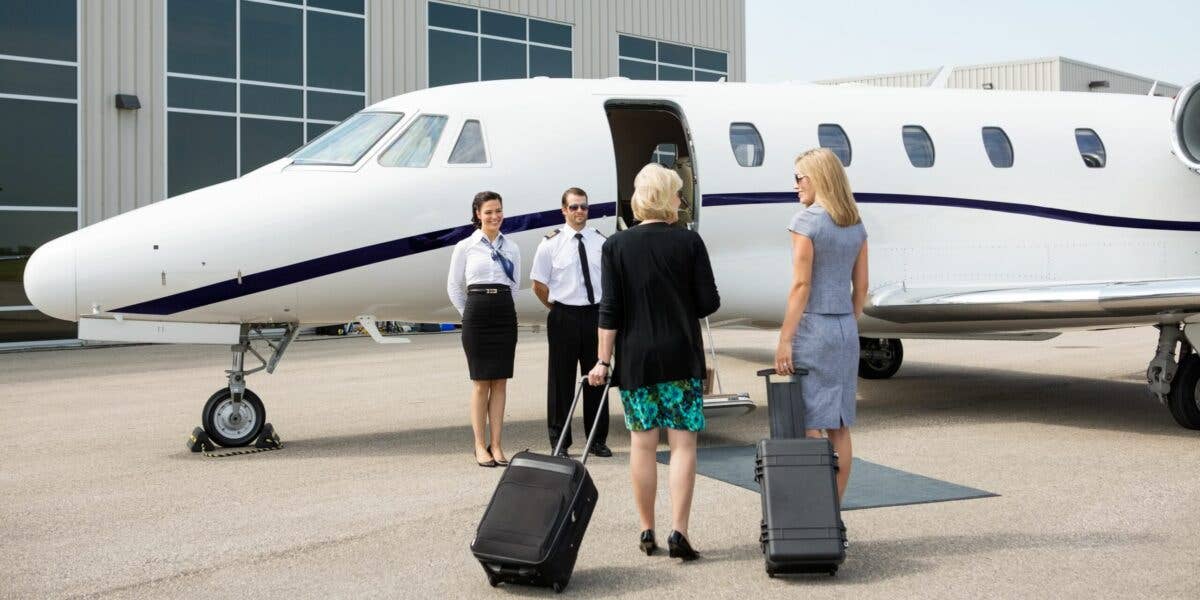Aviation Attorney Presses FAA to Update Mental Health Policies
This pilot-turned-aviation certificate defense lawyer wants the FAA to develop a more comprehensive system to provide pilots the support they need for mental health concerns.
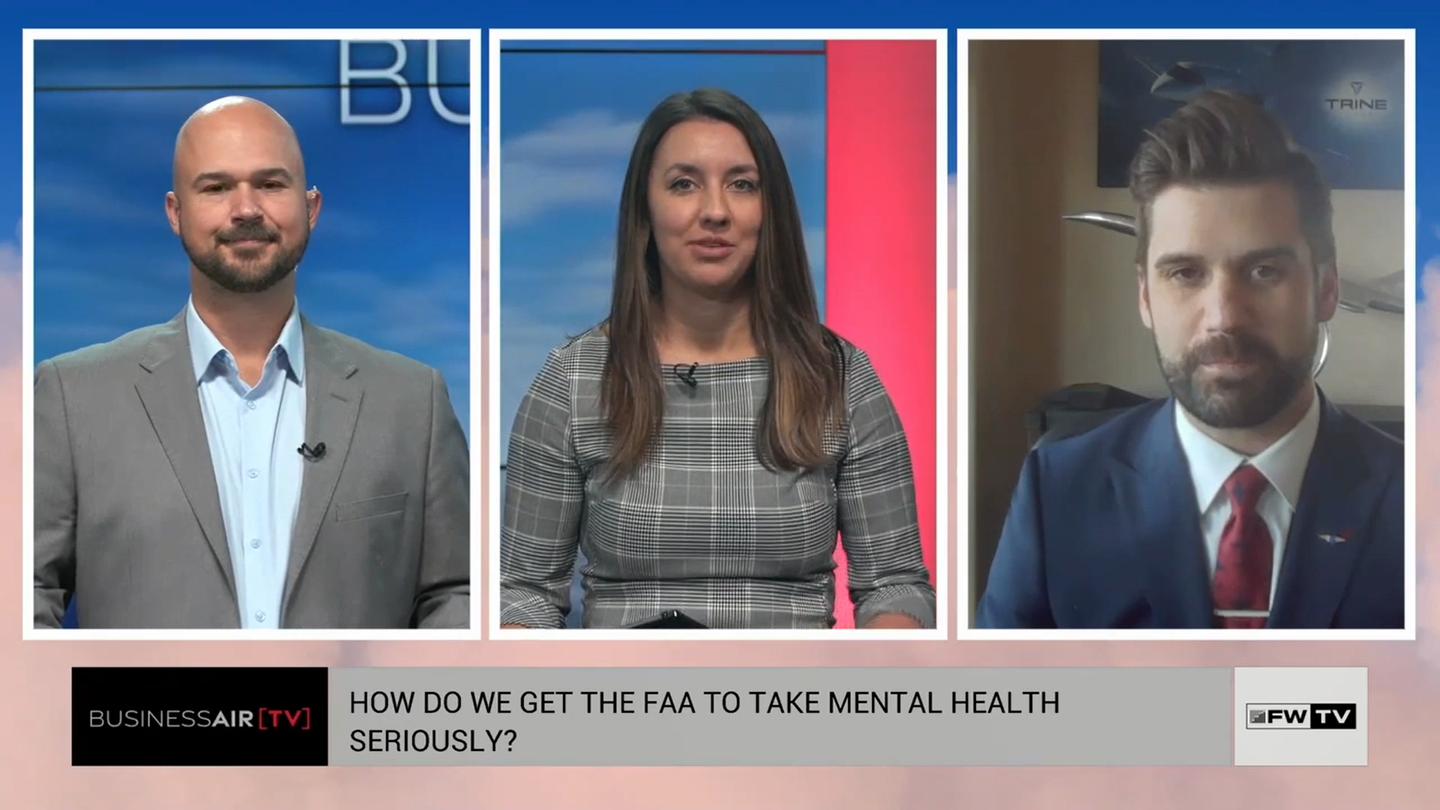
LoRusso, a pilot-turned-lawyer recently joined BusinessAir TV, where he spoke with FLYING COO Preston Holland and Kaylee Nix about the state of mental health support in the aviation industry. [Courtesy: Flying Magazine]
Aviation attorney Joe LoRusso is a "fierce advocate" for supporting pilot mental health and has made it his business to do so—at least that's how he'd put it, based on his profile at Ramos Law.
LoRusso is a lead aviation attorney at the firm, but before that, he was a pilot. The pilot-turned-lawyer recently joined BusinessAir TV, where he spoke with FLYING COO Preston Holland and Kaylee Nix about the state of mental health support in the aviation industry.
"With aviation law, I do certificate defense and one of the few that does certificate defense with a focus on the medical side," LoRusso shared during the segment.
LoRusso, according to a Ramos Law profile, said the impetus to become a lawyer came nearly a half decade after working as a professional pilot because he "saw a need for dedicated and passionate representation of pilots." With the bar under his belt, the Colorado-based lawyer blends his time between supporting his clients and flying actively as a contract pilot.
"I'm still a professional pilot—I fly half the time, and I do attorney-ing half the time," LoRusso said.
"I started my career putting pilots into the HIMS [Human Intervention Motivational Study] program and letting 135, and 91 drivers have access to what is normally a 121 program," LoRusso shared.
‘Inadequate’ Mental Health Policies
The HIMS Program is a substance abuse treatment program designed specifically to help professional pilots. According to HIMS, "It is an industry-wide effort in which managers, pilots, healthcare professionals, and the FAA work together to preserve careers and enhance air safety."
But during his segment, LoRusso said he had changed tunes. "As my career progressed, I realized the HIMS program has essentially lost the plot. It stopped being about clinical medicine, and it started being about money in pockets," he said.
LoRusso said now, he's pulling pilots out of HIMS and is now looking at the FAA's medical standards. He isn't satisfied with what he found there, either.
"It's absolutely out of touch with current clinical medicine," LoRusso said during the segment, describing the regulations in place as "inadequate."
"It is a constant banging your head up against the wall fight with the FAA, but it's worthwhile and necessary," LoRusso said.
When Holland weighed in to mention some of the ongoing conversations around mental health in the industry and asked LoRusso if he could name some of the things the FAA was doing well regarding mental health, LoRusso said he couldn't think of anything."I know I'm going to get flak from the FAA, but that's the truth," LoRusso said.
FLYING reached out to the FAA to clarify LoRusso’s claim. In response, the agency said, “the FAA encourages pilots to seek help if they have a mental health condition since most, if treated, do not disqualify a pilot from flying.”
LoRusso went on to name one initiative the FAA was doing but didn’t seem to think much of it.
"Dr. Northrup is doing 'The Air Up There' podcast where she's talking about mental health," which he cites as part of the agency's awareness campaign. "But really, that doesn't mean anything."
A spokesperson with the FAA countered the claim. “During the last several years, the FAA has invested resources to eliminate the stigma around mental health in the aviation community, so pilots seek treatment,” the agency spokesperson said.
Specifically, the FAA said its efforts included:
- Increasing mental health training for medical examiners
- Supporting industry-wide research and clinical studies on pilot mental health
- Hiring additional mental health professionals to expand in-house expertise and to decrease wait times for return-to-fly decisions
- Initiating clinical research to address the frequency of cognitive testing in airmen on antidepressant medication
Still, according to LoRusso, the FAA needs to focus its efforts on changing regulations concerning mental health provisions for pilots, which according to his measure, "haven't been updated since the early 80s."
"The FAA can say as much as they want, but until they actually start changing the regulations through rulemaking and notice and comment period, it's all façade," LoRusso said.
Humanizing Pilots
When Nix quizzed LoRusso to name specific policies that he thought were worth changing, he explained that in the context of the pandemic, which the World Health Organization says has resulted in 6.63 million deaths worldwide, even pilots are facing a hard time.
"What I do is try to humanize pilots," LoRusso said. "COVID was hard for everybody. Often we get the thought that when I say mental health, we're talking about schizophrenia and bipolar [diagnoses], but I'm also just talking about anxiety and situational depression."
LoRusso pointed out that while pilots can address those disorders through means such as counselors, therapists, and even medicine, he said FAA regulations don't allow pilots to do that.
"From the FAA standpoint, with the regulations, if you are grieving for the loss of a loved one, and maybe you have situational or acute depression, in response to that, you're disqualified. You're as disqualified from flying as somebody with bipolar disorder," he said.
He explained that this is because of the limitation of the application for a medical certificate, form 8500-8, that professional pilots have to fill out to gain a medical to work. Specifically, Question 19 of the form requires pilots to disclose the previous three years of visits to health professionals. According to LoRusso, if it included psychiatrists, it sets off a cumbersome chain of events for pilots, namely because he says the FAA has limited personnel in the Federal Air Surgeon’s office who have the final say in the review process. Because they can't fast-track the process, LoRusso argues that pilots are left in limbo.
The FAA put it differently. In its statement to FLYING, the FAA said, “Aviation medical examiners are trained to determine the pilot’s mental health and fitness to fly.” However, it said, “the examiner may request additional psychological testing if necessary,” but also clarified that “before these examinations, pilots must disclose any mental health conditions. Commercial airlines often have their own mental health screenings and requirements,” the agency said.
Is HIMS a Problem?
LoRusso has another suggestion, however. He wants the FAA to stop relying on HIMS personnel in the medical evaluation process because he believes there's a discrepancy in the process.
"The FAA utilizes HIMS psychologists and psychiatrists for most mental health concerns to evaluate airmen for mental health conditions," LoRusso said. "We're finding that the FAA will reverse their decisions, and that's the problem." In other words, he says HIMS personnel are disconnected from the process because they haven't interacted with the clients directly, yet they have the power to decide whether they are fit to fly.
The FAA shared with FLYING resources that explain its pilot mental health oversight, as well as remarks by former FAA Administrator Steve Dickson on pilot mental health.
"We have people that are disconnected in the federal air surgeon's office, that are looking at a report and making a clinical decision that is counter to a medical professional that has seen the pilot, face-to-face, and went through the medical records and evaluated them appropriately. The fact that those evaluations are getting disregarded is shocking."
Where does the industry go from here? LoRusso said that, unfortunately, professional pilots are also up against the public's opinion of pilots dealing with mental health issues.
"If you stop somebody in Newark International Airport and you asked them, 'would you be concerned if your pilot had depression? Immediately, the public would say, no, I don't want that," LoRusso reasoned. As a result, he said the industry should be more outspoken, but he is doing his part.
As for pilots dealing with their struggles, LoRusso's advice is two-fold.
"Go see somebody and then see an aviation attorney because we can do much more proactively than reactively."

Subscribe to Our Newsletter
Get the latest FLYING stories delivered directly to your inbox


